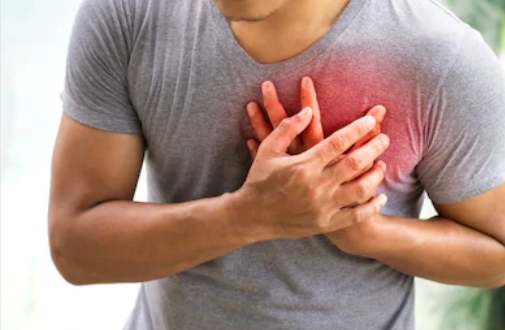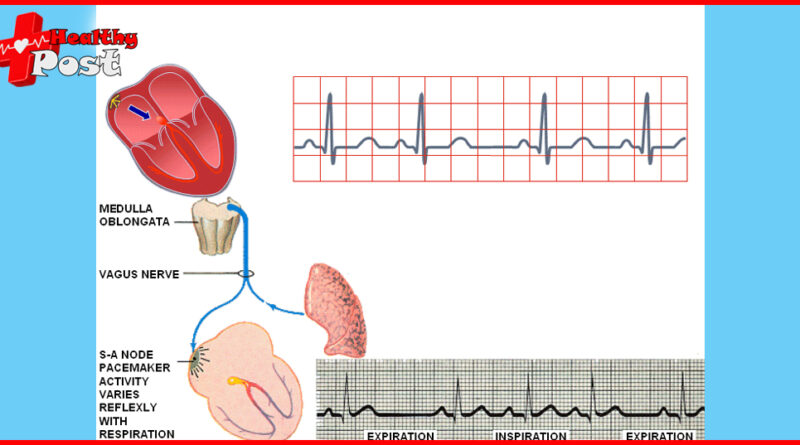What are the symptoms of sinus arrhythmia?
An irregular heartbeat is a heartbeat that is either too fast or too slow.
Tachycardia, bradycardia or arrhythmia caused by abnormal changes in cardiac autonomic rhythm or conduction abnormalities; mental anxiety, heavy smoking, drinking, drinking strong tea or coffee, overwork, frequent insomnia, etc. are often the causes of arrhythmia .
Arrhythmias are common in patients with heart disease, and often occur during anesthesia, surgery, or after surgery.
1. Symptoms
Most arrhythmias do not cause any symptoms. When symptoms occur, they are usually:
1. Palpitations (a condition in which the patient can feel the heartbeat getting faster and heavier)
2. Slow heartbeat
3. Irregular heartbeat
4. Brief heart pauses between heartbeats
Arrhythmia induced by organic heart disease is often accompanied by some symptoms, such as dizziness, chest tightness, chest pain, shortness of breath, sweating, pale face, cold hands and feet, convulsions, coma, etc. People with mild arrhythmia can still work and study as usual.

2. Main Causes
Irregular heartbeats are often triggered by conditions such as:
1. Metabolism problems
Electrolyte imbalance (potassium, sodium, calcium) in the body, endocrine disorders ( hyperthyroidism .
2. Emotional excitement
Especially when you are excited, it will affect the endocrine system and cause arrhythmia.
3. Heart disease
Ischemic heart disease (coronary artery disease), rheumatic heart disease , myocarditis, cardiomyopathy, and congenital heart disease, etc.
4. Medication
In addition to some drugs that may induce arrhythmia, caffeine in coffee, nicotine in cigarettes , and alcohol can also induce it when taken in certain doses.
3. Disease Type
1. Sinus bradycardia
If the heart rate is less than 60 beats per minute and the beating is regular, the heart function of a person who exercises is strong, so the heart only needs to beat 40-60 times to maintain normal blood circulation. If the heart rate is less than 30 beats per minute, it usually means there is a heart conduction problem.
2. Extrasystole
Early contraction sends abnormal commands to a certain part of the heart, causing the heart to beat one extra beat. If the frequency of the attack is not high, the effect will not be significant. However, if the frequency of the attack is high, or if more than two premature contractions occur together, it can easily induce malignant arrhythmia.
3. Atrial fibrillation/ atrial flutter
During an attack, the atrial contraction can reach 350 times per minute. The atria are just trembling, and the blood is always idling in the atria. Therefore, the cardiac output is 25% less than normal. Since the blood stays in the atria for a long time, blood clots are likely to occur, which may induce vascular embolism, cerebral stroke, and pulmonary infarction.
4. Wolf Parkinson-White Syndrome
This is a congenital problem of the cardiac nervous system. In addition to the normal conduction nerves of the heart, one or more nerves grow extra, thus forming a neural circuit circulation of electric waves between the atria and ventricles, causing paroxysmal supraventricular tachycardia, which occurs at irregular intervals.
5. Sinus tachycardia
The heart beats regularly between 100 and 150 times per minute. If the heart beats more than 150 times per minute, it indicates other arrhythmias.
6. Sinus arrhythmia
An electrocardiogram examination confirmed that it was only sinus arrhythmia, which is a normal physiological condition. Sinus arrhythmia is related to the changes in intrathoracic pressure caused by the respiratory cycle. The heart uses the beating rate to regulate the filling and output of the heart blood.
7. Paroxysmal supraventricular tachycardia
An abnormal instruction appears somewhere in the atrium, which makes the heart beat faster to 150-250 beats per minute, but the heartbeat remains regular. The patient will feel palpitations, chest tightness, and dizziness, which can last for several minutes to dozens of hours. The mortality rate is very low.
8. Ventricular tachycardia and ventricular flutter
Arrhythmia is caused by heartbeat commands sent from somewhere in the ventricle. When it occurs, it will affect heart function and the cardiac output will be less than 20% of the normal level. Emergency and immediate treatment is required. Patients with this kind of arrhythmia generally have hidden heart disease.
9. Heart block
When the heart’s generator or conduction nerves malfunction, electrical waves cannot be transmitted to the myocardial cells, the heart rate will decrease or even stop. When the heart rate is less than 30 beats per minute, it will be dangerous.
IV. Treatment

Treatments for irregular heartbeats include electric shocks, pacemakers, medications, and surgery.
1. If you have symptoms such as palpitations, chest tightness and dizziness, it may be arrhythmia and you need to see a doctor for examination.
2. If medication is used for control, do not stop, reduce, or increase the dosage on your own to avoid the risk of recurrence.
3. Arrhythmia is divided into benign and malignant. When malignant arrhythmia occurs, it will seriously affect the heart’s blood output.
4. People with arrhythmia should quit smoking, drinking, coffee and betel nuts , and maintain an optimistic and calm state of mind.
If sinus arrhythmia occurs, it needs to be taken seriously and you should go to the hospital in time for screening of organic heart disease . Of course, it is best to have an electrocardiograph at home and insist on self-checking the electrocardiogram at home to give your heart more intimate protection.
Welcome to follow the official website of Good Friend ECG Machine to communicate and learn more about arrhythmia and ECG related knowledge.
Some of the pictures in this article are from the Internet. If there is any infringement, please contact us to delete them!
You may be interested in:
My heart occasionally beats suddenly and heavily. Is this sinus arrhythmia?
What causes sinus arrhythmia?
This may be the most comprehensive detailed explanation of the treatment methods for sinus arrhythmia!

